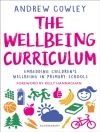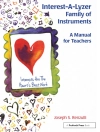Gender studies are a key lens through which education has been examined in the past forty years, having become an accepted and popular subfield in educational foundations studies. Moreover, scholars in gender and education have made tremendous contributions well beyond education, influencing humanities and social sciences scholars across the academy. Hearing the stories of these scholars—their development, education, important works, and thoughts on the future—offers unique insights into the genesis and growth of the field and gives new scholars an overview of advances made. Leaders in Gender and Education: Intellectual Self-Portrais does just that, showing the history of gender and education through the eyes of 16 of its leaders. By recounting their experiences and scholarly work, they trace the development of feminist and profeminist research on girls, on boys, and on the issues shaping both gender and education—issues like race, sexuality, neoliberalism, globalization, and more. Importantly, the volume has a global focus, including scholars from the United States, Canada, the United Kingdom, and Australia. This diversity gives readers a broad sense of the progress of gender scholarship in education around the world. Each essay provides students and researchers alike with not only background on the 16 scholars included, but also the lists of major works—chosen by contributors themselves—direct readers to some of the most important scholarship on gender and education. Taken together, further, the contributors’ thoughts on the future of the field provide glimpses of productive directions for studies of gender and education.
表中的内容
Series Editor’s Preface; Acknowledgements; Gender and Education: An Introduction to Some Leaders in the Field; Forever Troubling: Feminist Theoretical Work in Education; Equal Rights, to a Certain Extent: Memoirs of a Researcher into Mysteries of Gender and Education; A “Mother” of Feminist Sociology of Education?; Life in Three-Walled Rooms; A Feminist DNA: Exploring a Political/Intellectual History; Making an Impact?; A Defiant Research Imagination; An Intellectual Autobiography: The Return of the (Feminist) Subject?; Positions/Dispositions: Reflections on Engaging With Feminism and Masculinity Politics; Revisiting The Making of Men and Other Texts; On a Commitment to Gender and Sexual Minority Justice: Personal and Professional Reflections on Boys’ Education, Masculinities and Queer Politics; History, Place and Generation: Working in Gender and Education from Australia; Men, Feminism and Education: Personal Reflections; Pioneering Gender Equity in Education: A Love Story (Or, Marrying into a Revolution); Feminism and Social Class; A Conversation with the Field.












